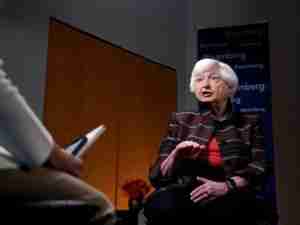South Korea Lobbies China at WTO Over Missile Shield Trade Spat
By: Kanga Kong | Mar 20 2017 at 04:01 AM | International Trade
South Korea has taken a tentative first step against China at the World Trade Organization, complaining about its economic retaliation over the planned deployment of a U.S. missile shield.
Seoul on Friday raised the possibility that Beijing is violating WTO rules with its actions against South Korea’s tourism and retail sectors, Kang Myung-soo, director-general of the Trade Ministry’s trade cooperation bureau, said by text message.
Trade Minister Joo Hyung-hwan raised the issue with the WTO’s Council for Trade in Services, asking China to comply with its obligations, Kang said. Joo spoke about the WTO move during a parliamentary session where he took questions from lawmakers on economic matters, he added.
While the action is largely symbolic—Kang said it was not a legal step to seeking dispute settlement, but aimed at sharing the issue among “multilateral parties”—it could put some pressure on China, which has recently advocated strongly for the WTO’s role in keeping free trade humming along. “Only trade that complies with WTO rules can be considered fair trade,” China Commerce Ministry spokesman Sun Jiwen said on March 9.
Missile Tensions
Tensions have risen between the countries over the decision to bring the missile-defense system, known as Thaad, onto South Korean soil. Seoul and the U.S. say Thaad is to counter the missile and nuclear threat posed by North Korea, but China argues its own military capabilities could be affected by the system.
China, which absorbs a quarter of South Korea’s overseas shipments, is putting the squeeze on some Korean companies. It has banned the sale of tour packages to Korea, while the operations of dozens of Lotte Mart stores have been suspended in China for alleged fire safety breaches. The retail giant’s board agreed to provide golf course land to the South Korean government for the Thaad site.
U.S. Secretary of State Rex Tillerson, during a visit to Seoul last week, called China’s recent steps “inappropriate.” He said the U.S. will proceed with the Thaad deployment.
The WTO has various stages to settle a dispute but all member states are “encouraged” to consult each other to find agreement “out of court,” according to its website.








